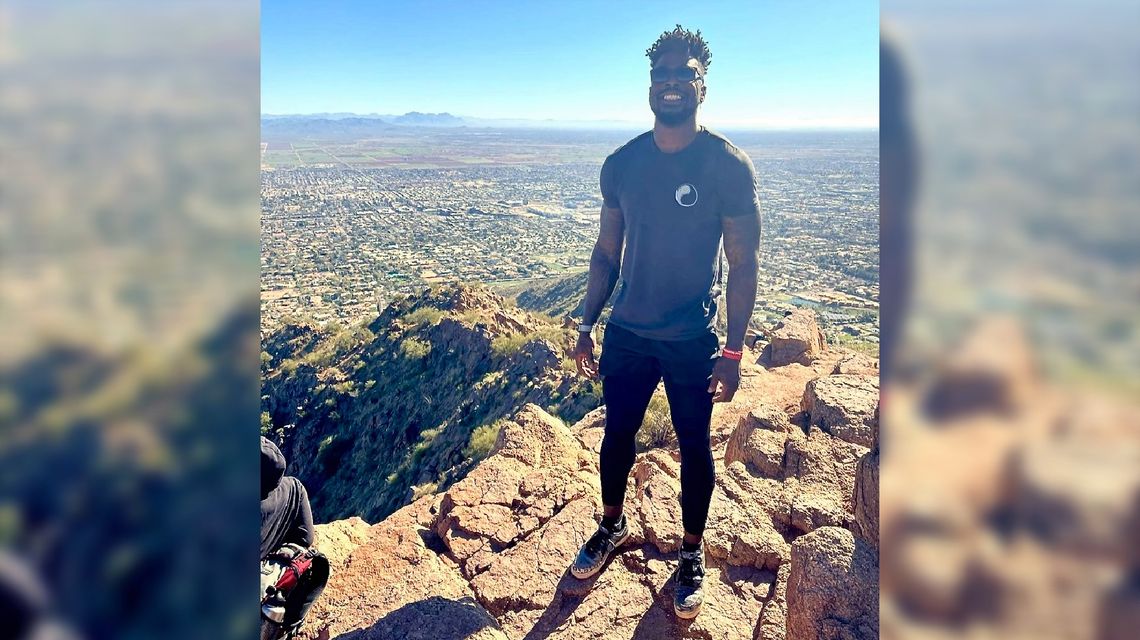
Former NFL tight end Brandon Bostick opens mental wellness clinic in Colorado
FLORENCE, S.C. (BVM) – The topic surrounding mental health – specifically among athletes – is one that has been tiptoed around for decades. We have seen the sports world specifically support the notion that without pain there is no gain, and men don’t cry. Though this macho facade has led many athletes to success, it has also played a detrimental role in the failure of others. And in today’s world, the avoidance of mental health is a sure path down a slippery slope.
Brandon Bostick experienced firsthand the struggles of professional sports and what can happen when mental and emotional wellbeing are pushed aside to make way for athletic success and clout.
“The conversation around mental health was absolutely stigmatized when I was in the league,” Bostick said. “I didn’t hear anything about mental health while I was playing. It was more like you just fight through whatever you’re going through – that was the mood at the time. I think they had therapists and stuff like that, but it wasn’t advertised or talked about. It was honestly more frowned upon, like you should be able to handle whatever you were dealing with on your own. The stigma was real.”
Bostick grew up in Florence, South Carolina with his mother, father, and two younger brothers. Though he tends to downplay his athletic ability in his younger years, as a 6-foot-4 high schooler at West Florence, Bostick was able to handle his own both on the basketball court and the gridiron. He went on to attend Newberry College and played wide receiver for the Wolves from 2008-11. And though he was a competitive collegiate athlete, Bostick’s first experience with self-induced stress didn’t come until his junior season.
“Growing up I wouldn’t say I was a crazy athlete so I never had any big expectations to excel in sports,” Bostick said. “I was decent in high school but I wasn’t highly recruited. So I really didn’t start to feel any type of pressure to succeed in football until my junior year at Newberry. That was the first time I was like, ‘Oh I can actually make it to the NFL’ and it felt different from then on.”
Bostick’s pressures continued to build as he signed as an undrafted free agent with the Green Bay Packers in 2012. He remained on the practice squad for the entirety of his first season and in 2013, earned a spot on the active roster. It was a year of unbelievable bliss as Bostick caught his first career touchdown and saw his notoriety begin to skyrocket. For the then-24 year old, he was truly living the dream.
“Looking back, I definitely had a lot of added pressure that I put on myself that I didn’t realize,” Bostick said. “Going undrafted was kind of like the underdog story for me. I wanted to do what I could with the opportunity I was given. And then when I made the active roster, I started to feel like I made it. I got my jersey, my social media started to get hot. It was a surreal experience that I don’t think I was prepared for.”
Bostick followed a young, wild and free path through his first two seasons on the active roster with the Packers and produced well on the field. The lifestyle of a professional athlete suited him well and every moment was soaked in. With more pressure mounting every day, Bostick silenced any stress with a good mixture of training and partying with success. In 2014, he caught his second career touchdown from future Hall of Famer Aaron Rodgers. This, Bostick said, was one of the highlights of his playing career. But with the ups of life come the downs, and the down that followed was dark.
“I would say the two pits of my career were the NFC championship game and then failing that drug test in New York and not getting the chance to finish my football career,” Bostick said. “I feel like those two things were huge contributors to the decline of my mental health. Once I failed that drug test, I was a free agent and I just couldn’t get back into the game after that.”
Green Bay’s chance to make Super Bowl XLIX went through the Seattle Seahawks in the 2014 NFC championship game. A hectic matchup all around, Bostick misplayed an onside kick by the Seahawks that allowed them to recover the ball and subsequently score a touchdown. Though the game went into overtime, Seattle prevailed and Bostick was blamed for the Packers loss. He was immediately cut from the team and experienced an unimaginable amount of hate and harassment from fans that follows him to this day.
After his release from Green Bay, Bostick bounced around a few programs until he signed with the New York Jets in 2016. He played in all 16 games that season but failed a drug test and was released from the team. And just like that, his professional playing days were over.
Bostick saw two stints in a mental health and substance abuse facility following his failed drug test. The first, organized and facilitated by the NFL, turned out to be largely unsuccessful. His second trip came in 2020 and was self-prompted. This 30-day stay in a California clinic was the catalyst for Bostick’s wellness journey and provided him with his first mental health diagnosis.
“In 2020, I was diagnosed with social anxiety and depression,” Bostick said. “And honestly it really caught me off guard. I went through a denial phase of like, ‘No that’s not true, I’m not depressed, I don’t have anxiety.’ But then the more treatment I did and the more therapy I did, I started to open my eyes and realized what I was going through.”
Through his diagnosis, Bostick was able to slowly put the pieces together and figure out what was going on for him, and why. As his perspective changed around his own mental wellbeing, his eyes were opened to the things he had experienced and how his process of dealing — or not dealing — with those experiences impacted his everyday life.
“At the beginning of this whole process, I didn’t share anything with anyone,” Bostick said. “I couldn’t express how I was feeling, I didn’t know how to tell anyone or how to even begin to speak about it. I struggled with that because what man wants to talk about their emotions and what they’re going through. But once I started group therapy, it kind of jump started my vulnerability.”
Bostick attributes a lot of his healing to group therapy, where he was first able to see how his journey inspired others who were dealing with similar struggles. And the more he shared, the more peace and support he felt.
“It was nice to talk to a group of my buddies who were going through the same things,” Bostick said. “It made me want to be more open and vulnerable because I saw how powerful my voice was in telling my story.”
Despite the backlash from his days in the NFL, the support Bostick has received since choosing to open up about his mental health struggles has been above and beyond what he could have imagined. So when he received an opportunity to share his journey with others on a larger scale and help those in need, Bostick was all-in.
“Sage Elite started with an idea that was posed to me,” Bostick said. “At the time I was trying to figure out what I was going to do and was trying to find my purpose. I didn’t know what was next for me after football so it was perfect timing and it all came together at the right time.”
Sage Elite Healing will open its doors in Boulder, Colorado this spring and provide guidance for growth in mental, emotional, physical and spiritual healing. The wellness clinic is focused on helping members develop the necessary tools to navigate through life’s ups and downs. Sage Elite provides a mixture of holistic and clinical approaches to therapy while relying on its strong athletic foundation. This combination of paths to therapy has the potential to support any person looking for growth.
“We are just trying to help anyone who is struggling with their mental health and unsure of their purpose,” Bostick said. “A lot of people want to live a better quality of life but don’t know what is holding them back or how to get there. The clinic sees all ages – youth to adult – athletes, non-athletes. Anyone who is looking to start or continue in their journey.”
Bostick hopes to open more clinics throughout the country, specifically in his home state of South Carolina and his current home in Arizona. And through the process of supporting others in their journeys, Bostick will continue working on his own, one day at a time.
“My mornings are tough for me because that’s the time of day when I feel most of my anxiety and depression,” Bostick said. “So when I wake up and feel those moods, I go straight into prayer, time with my dog, and meditation. I make sure to get my mind at peace and in a balanced place. I work out and do yoga once a day and then try to do something for my mind, so I will listen to a podcast or read, maybe meditate more. I also train youth football players, so that brings me joy. But really I am just focused on getting myself right and doing what I can to help others get right. Just taking it step by step, one day at a time. That’s all you can really do.”





